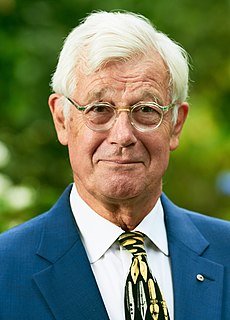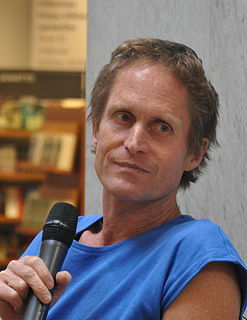A Quote by Joyce Carol Oates
I can't imagine a mental life, a spiritual existence, not inextricably bound up with language of a formal, mediated nature. Telling stories, choosing an appropriate language with which to tell the story: This seems to me quintessentially human, one of the great adventures of our species.
Related Quotes
In the most basic way, writers are defined not by the stories they tell, or their politics, or their gender, or their race, but by the words they use. Writing begins with language, and it is in that initial choosing, as one sifts through the wayward lushness of our wonderful mongrel English, that choice of vocabulary and grammar and tone, the selection on the palette, that determines who's sitting at that desk. Language creates the writer's attitude toward the particular story he's decided to tell.
I watched the gorilla's eyes again, wise and knowing eyes, and wondered about this business of trying to teach apes language. Our language. Why? There are many members of our own species who live in and with the forest and know it and understand it. We don't listen to them. What is there to suggest we would listen to anything an ape could tell us? Or that it would be able to tell us of its life in a language that hasn't been born of that life? I thought, maybe it is not that they have yet to gain a language, it is that we have lost one.
Ubuntu is very difficult to render into a Western language. It speaks of the very essence of being human.... you are generous, you are hospitable, you are friendly and caring and compassionate. You share what you have. It is to say, 'My humanity is inextricably bound up in yours.' We belong in a bundle of life.
Human language has a vocabulary suited to our daily needs and functions: the shape of any human language maps approximately to the needs and activities of our mundane lives. But few would deny that there is another dimension of human existence which transcends the mundane: call it the soul, the spirit: it is that part of the human frame which sees the shimmer of the numinous.
I feel like in the reading I did when I was growing up, and also in the way that people talk and tell stories here in the South, they use a lot of figurative language. The stories that I heard when I was growing up, and the stories that I read, taught me to use the kind of language that I do. It's hard for me to work against that when I am writing.
When we say 'time', I believe we mean at least two things. We mean changes. And we mean something unchangeable. We mean something that moves . but against an unmoving background. And vice versa.Animals can sense changes. But consciousness of time involves the double sense of constancy and change. Which can only be attributed to those who give expression to it. And that can only be done through language, and only man has language.The perception of time and language are inextricably bound up with one another.
The most powerful words in English are 'Tell me a story,' words that are intimately related to the complexity of history, the origins of language, the continuity of the species, the taproot of our humanity, our singularity, and art itself. I was born into the century in which novels lost their stories, poems their rhymes, paintings their form, and music its beauty, but that does not mean I had to like that trend or go along with it. I fight against these movements with every book I write.
The more foreign to me, to my existence, to your core existence, the more foreign the foreign language, it's really moving to me to think, to get to experience my own story crossing those boundaries. To have that experience that I so cherished as a reader. I can't believe this. To me, it's really nice because that would be a thing where I'm like, "There may be lots of Jews in my work. I'm not writing stories for Jews. I'm telling stories about people, and Jews are people, too."
Why the connection with musicians? I think it's because in the end we're doing very similar things - we're telling stories, we're using poetic, lyrical language, and we're distilling stories down into their simplest form. We're both telling a story in two languages - word and music for them; and word and image for me.
Public speaking is done in the public tongue, the national or tribal language; and the language of our tribe is the men's language. Of course women learn it. We're not dumb. If you can tell Margaret Thatcher from Ronald Reagan, or Indira Gandhi from General Somoza, by anything they say, tell me how. This is a man's world, so it talks a man's language.
Nature is a language and every new fact one learns is a new word; but it is not a language taken to pieces and dead in the dictionary, but the language put together into a most significant and universal sense. I wish to learn this language - not that I may know a new grammar, but that I may read the great book which is written in that tongue.




































